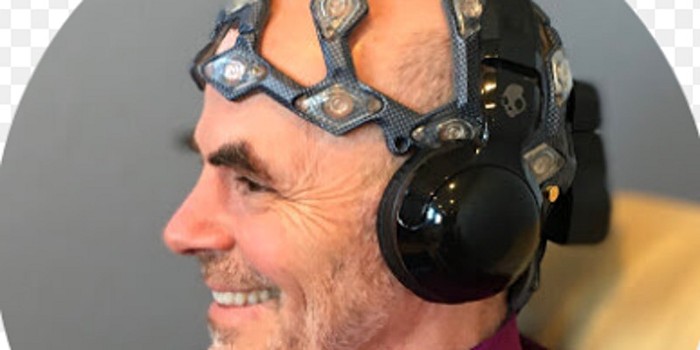PART THREE — MENTAL HEALTH AND WELLNESS APPLICATIONS AND COMMUNITIES
INTRODUCTION
The Neurotech category within TransTech has been experiencing rapid growth in recent years. It comprises brain-computer interface (BCI) technology such as EEG and fMRI brain measurement and monitoring, along with a range of platforms and applications aimed at diagnosing, maintaining or treating mental health and wellbeing. Part 3 in this series focuses on innovative applications leveraging BCI, and also on some of the communities that have arisen to evangelize the possibilities.
APPLICATIONS
EEG and other brain monitoring devices will continue to decrease in prices, but even the early generation of devices has motivated new applications of whatever date can be gathered or inferred from the device outputs. A sampling of such applications will give an idea of the range of the impact of wider availability of such brain sensing technologies.
Alzheimer’s
The Boulder Chapter of TransTech recently featured Dr. Pierre Brunschwig, pictured below, whose family practice includes the use of a portable EEG device to perform scans that can provide early warnings of abnormal brain aging. He uses the WAVi EEG headset, and reported that there is enough data in those scans to enable him to at least flag patients for further consultation and early intervention.
The general state of the art of detecting biomarkers (of which EEG markers are a subset) for Alzheimer’s, and other cognitive impairments, is seeing widespread attention among medical researchers. For example, a joint private/public venture called Early Detection of Neurodegenerative Diseases (EDoN) includes work streams that include better defining digital biomarkers plus aproject to create a wearable device to detect early signs of Alzheimer’s. “The goal is to design a wearable device to collect a variety of data, including gait, heart rate, and sleep patterns to begin mapping signs of the disease years before symptoms develop.”
Clear biomarkers for some kinds of cognitive impairments seem to be becoming well known, and so the above applications have drawn attention. Some impairments are harder to diagnose, and so the neuroscience needs to progress further before consumer-priced devices can have an impact.
Concussions/Brain Injury
Concussion assessment has drawn attention in recent years as high-profile former professional athletes have died from depression-related suicide. Google Glass’s turn to an enterprise focus found them exploring traumatic brain injury detection with a wearable helmet.
Sens.aimarkets a headset developed by a founder who has been a concussion and PTSD patient. The commercial price point at $695 for a 3-sensor device allows for a direct to consumer model, but also offers a “clinical-grade” device which “comes with a range of built-in protocols to support Neuro-assisted Meditation, Trauma Release, Cognitive Anti-aging and Peak Performance.” The company is private and angel funded to date, just coming to market now.
A start-up called awarewear (formerly SportFitz) offers hardware and software for concussion detection.
Post-Traumatic Stress Disorder
Baslyne is a services company which leverages the WAVi headset to assess various brain impairments. One of their first focus areas is testing for neural indicators of certain aspects of PTSD.
General Mental Health Care iMediSync from Korea offers a “QEEG-centered” digital mental care platform. The platform actually combines EEG wearables and data management, plus a photobiomodulation for some types of treatment.
Hipposcreen in Taiwan has developed an EEG-based system using biomarkers for depression diagnosis.
Attention Deficit Disorder
Narbis provides EEG-equipped smart glasses that detects distraction (based on an algorithm developed for NASA astronauts) and signals the user by changing the tint of the glass
SleepTech
UrgoTech is a player in the fast-growing Sleep Tech market segment. The readout from nightly sleep is intended as neurofeedback to help the user fall asleep faster and reduce nighttime awakenings. Their URGOnight product includes an EEG measuring headband connected to an app, and offers customized, neuroscience-based exercises that teach the user how to produce the brainwaves that will enhance his natural sleep.
Meditation
EEG pioneer Muse, covered in Part 1 of this series of articles, has been focused on the meditation use case, and recently acquired Meditation Studios, a curator of guided meditation audios for use while wearing the Muse headband.
Gaming
Gaming, in particular VR-based platforms, is where an enormous amount of corporate investment in Neurotech has been happening. Although I have been tracking many developments in this space (see Part 1 of this series for some examples,) I suspect there is a hidden portion of the iceberg that has yet to surface as a result of investment by the gaming platforms or other stealth efforts.
LooxidLabsis a Korean company working on a platform for VR-compatible brain sensing technology. They don’t sell games, but offer to license an SDK for VR environment development. They are now selling a package as an accessory device to the HTC Vive VR headset; the price point is $299.
Neurable is a well-funded startup that is focused on a family of consumer-priced EEG devices, but has been mostly promoting its VR-compatible brain-sensing device, to control 3D movement in games.
Healiumpairs its virtual reality technology with gamer devices like Oculus Go and EEG headbands for neurofeedback applications such as self-management of anxiety, pain, and sleep.
Assistive Tech and Neural Prosthetics
Control of prosthetic limbs has been kind of a “poster child” for EEG devices for some time. The NIH-sponsored National Center for Adaptive Neurotechnologies developed a BCI2000 platform which has been available to research and clinical groups for many years at no charge, but the program appears inactive since around 2017.
Part of the reason may be that commercial companies are focused less on rehab markets because there isn’t a lot of money available. At CES in 2018, I was able to find an assistive tech expert at the booth of eye-tracking tech leader Tobii Dynavox. But that expert was hidden away, and the booth was dominated by gamer applications. Interestingly, that AT expert is now working at Cognixion, which is specifically targeting verbal communication for people with disabilities, with a mobile app that generates speech through a combination of finger taps, eye gaze and/or direct brainwaves.
There is also some slow movement in a new generation of conventional AT like wheelchairs. The Whill has recently innovated with an autonomous driving wheelchair, currently being marketed as in-airport transport for disabled fliers. Relevant to TransTech, the company has a new developer program that could perhaps support EEG-interface control
The most profound work going on right now in this area is G.tec Medical’s mindBEAGLE, which is designed for assessment and communication with so-called locked-in individuals, who are completely paralyzed, including even eye movements. Some of their early work has demonstrated some ability of such patients to answer yes/no questions.
PART 5 — ECOSYSTEM AND COMMUNITY DEVELOPMENT
The BCI segment, like health care more generally, comprises a mix of entrepreneurs, corporate players, medical professionals, the university research community, and an array of non-profit organizations. Given its particularly hybrid nature, BCI has spawned a number of government and community building efforts. A few are listed here for illustrative purposes, ranging from grassroots user organizations to multinational, government sponsored efforts.
OpenBCI
OpenBCI, whose products were described earlier, operates an active community forum for users to share projects, best practices and open source code built on and extending the freely licensable OpenBCI platform.
NeuroTechX
NeuroTechX is a non-profit whose mission is to facilitate the advancement of Neurotech by providing key resources and learning opportunities. It is largely geared toward graduate and undergraduate student researchers and DIY makers, and its Slack channel is extremely active with several thousand users sharing information about tools, opportunities and best practices. The organization has recently built on its origins to offer industry recruitment and professional development services.
TransTech
TransTechis a global community of entrepreneurs, innovators, and investors building tech for mental wellness, emotional wellbeing, and human flourishing. Neurotech is one of their twelve target verticals. They encourage information sharing and resources through conferences, chapters and an accelerator program.
Human Brain Project
The Human Brain Project is a European Union creation comprising multiple work streams:
– Neuroinformatics
– Brain Simulation
– High Performance Analytics and Computing Platform
– Medical Informatics Platform
– Neuromorphic Computing Platform
– Neurorobotics
– Ebrains Web Platform
The BRAIN InitiativeThe BRAIN Initiative (Brain Research through Advancing Innovative Neurotechnologies) is a partnership of several NIH institutes plus DARPA and the National Science Foundation. It helps manage over $1 billion in federal research funding.
The Human Connectome Project
Another project co-sponsored by NIH, it is an effort to compile an enormous amount of neural data and enable a graphical map of the human brain.
RERC-ACT
The Rehabilitation Engineering Research Center for Advancing Cognitive Technologies (RERC-ACT) was established to conduct R&D of assistive technologies for people with cognitive disabilities. It is located at the University of Colorado, Denver.
National Mental Health Innovation Center
Also at the University of Colorado, in the CU Anschutz Medical campus, is the National Mental Health Innovation Center. The Center creates a communication channel between a number of start-up and more advanced companies doing work in this sector.
BCI Society
The Brain-Computer Interface Society is a member driven organization with 300+ members located in 24 countries. They hold a biannual conference with published papers.
International Brain Initiative
The International Brain Initiative is focused on advancing ethical neuroscience through international cooperation





